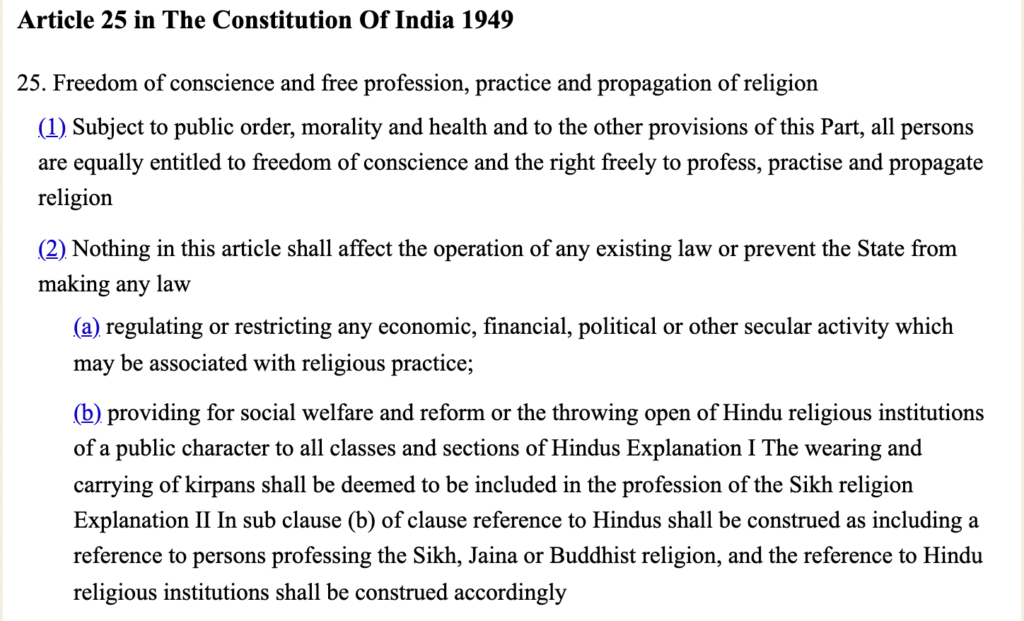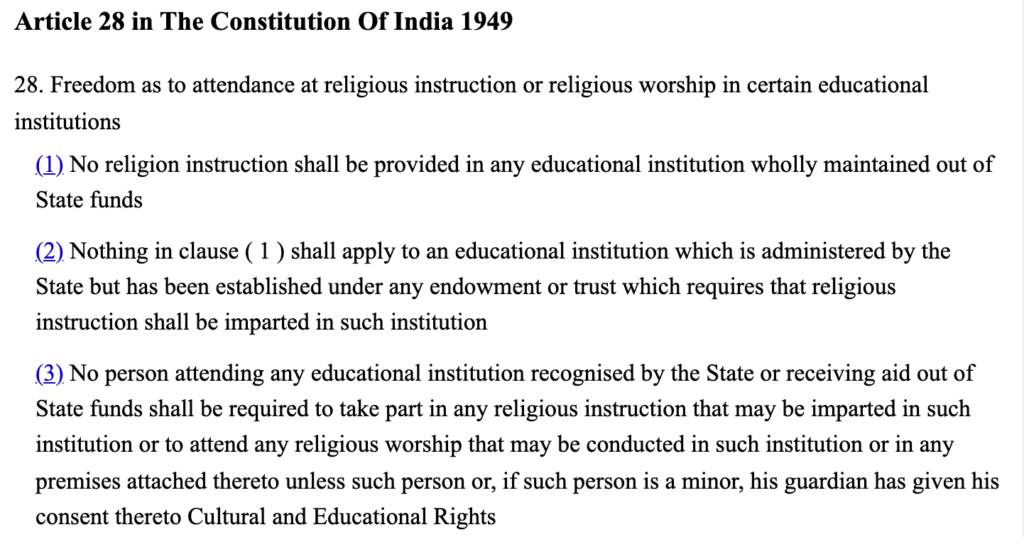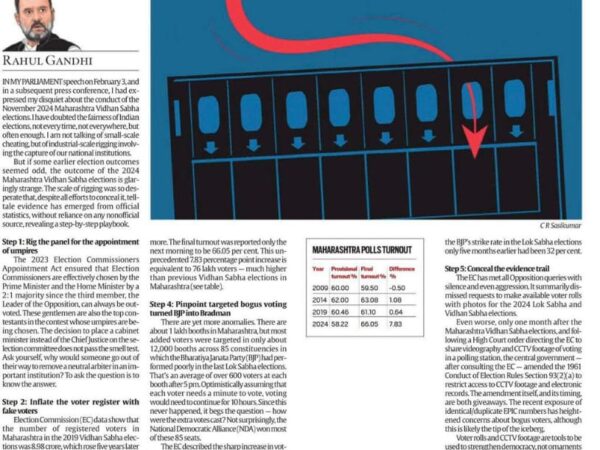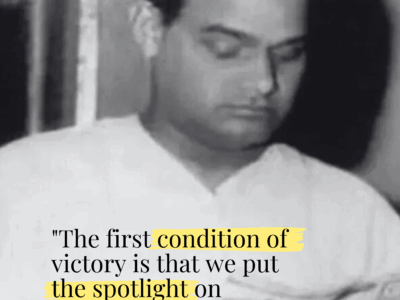Anything and anyone that makes religious conversion of any kind illegal in any sense anywhere in a democracy is treading dangerously close to the territory of thought crimes. A citizen of a democratic nation-state cannot be prosecuted for non-violent change of belief in anything, nor for persuading someone else to change their beliefs non-violently about literally anything and everything.
To those who claim that only those religious conversions that are effected on the basis of misrepresentation, force, fraud, allurement or marriage are banned or are going to be banned by proposed laws in the BJP’s manifestos across the nation, I say that as far as misrepresentation, fraud, and allurement is concerned, it falls under false and misleading advertising, which is covered under Section 89 of The Consumer Protection Act, 2019; and as far as force is concerned, I am sure there are more than enough sections in the IPC to deal with anyone compelling anyone to do anything by way of force not sanctioned by the legislature, directed by the competent courts with the specific jurisdictions, and exerted by the legally appointed uniformed body of police, paramilitary, and/or military personnel and governed by strict codes of conduct, precedents, and rules that are subject to oversight, monitoring, and even review & reversal, while being scrutinised and watched over by an aggressive press.
So, why exactly are we trying to write a new law for religions specifically? Is it because we have no laws for it, or our courts are not equipped to handle questions of false and misleading claims by providers or promisors of services and products, or our executive is toothless to act against those making fraudulent claims, or is the media in this country so dead as not to be able to see it (false and misleading advertising and use of force) clearly? Of course, the answer is, ‘All of the above’. But it is also more than that.
You see, religion is seen as a special case of a brand offering a special type of a service/product to its consumers/users and its evangelism and subsequent conversion is seen as a special case of marketing/advertising and sales/closure. If we were to measure and monitor religions in the same way as we do actual brands offering actual services and products, and have them clear the same bar of objectivity, not one single religion will pass the test, nor a single religious figure will have any defence against the simplest application of the abovementioned Section 89 of The Consumer Protection Act, 2019.
So, that is why we need an anti-conversion law to apply specifically to religions, because Section 89 is either too high a bar to clear for religious claims, or too tough to prosecute under, or our police are too weak to actually make the arrests in cases even where false and misleading claims are obvious. And so, we keep creating special cases for religion, as if it is a real thing that will bend to regulation!
Here is my recommendation: Either ban all religions (something I will be the first person to oppose and stand against) or allow all to practice and propagate themselves in whichever way they wish, within the parameters of laws that are already in place, and quite appropriate and sufficient. Anything less is an invitation to criminalising thought, something no democracy can ever do, and no regime has ever achieved in human history.
How can we implement such a radical solution? Maybe we could have something in the Indian Constitution that says something like:
- All citizens of India shall have the freedom of conscience and free profession, practice, and propagation of their religion. This is indeed simply the Freedom of Speech & Expression, but stated for a specific case (the special exception that we have decided to make religion to be).
- All citizens of India shall have the freedom to manage their religious affairs. This way, the state stays away from religion, as it should in a secular society that we are.
- All citizens of India shall have the freedom as to payment of taxes for the promotion of any particular religion. This should avoid the majority from imposing fines and taxes on minorities practising their faith (remember the infamous ‘jizya’? Yep, the Aurangzebian tax Hindutva apologists never fail to mention).
- All citizens of India shall have the freedom to attend religious instruction or religious worship in certain educational institutions set up by them and not funded by the government. That way, they can teach their adherents whatever claptrap they want without interference from the authorities. I’d say, we could water this one down a bit to ensure that it does not conflict with the fundamental right to an education that every child must be educated in a proper (and I am assuming you understand that means scientific) manner.
Do you agree that these are more or less fair rules to have and live by in a democratic secular republic that India is? OK, then, I invite you, dear reader, to take a look at Articles 25, 26, 27, and 28 of the Constitution of India, and see how our Founding Fathers (and I dare say Mothers) thought of this, and what wonderful clarity of thought they had, and committed to paper on our behalf.
Here’s an excellent article on the subject. The writer, a student of Hidayatullah National Law University, Raipur, writes in January 2020 gives an overview of the fundamental right of freedom of religion guaranteed by the Constitution of India under Article 25 to Article 28, and also touches upon religion and secularism (though, I think the author misrepresents what ‘secularism’ is actually about, conflating it with the more Indianised version of this simple but historical concept) with reference to various judgements in Indian courts over the years. It is a good starting point if you want to know more.
Now, tell me: When you already have all of this, why do you need anti-conversion laws? Unless of course, you mean you are only concerned about conversion from Hinduism, which is the majority religion in India. In which case, I get it.
What I don’t get is this: How delusional must one be to really think one can chain people’s minds and control their thoughts with a threat of punishment? And even if one could do that, wanting to?























